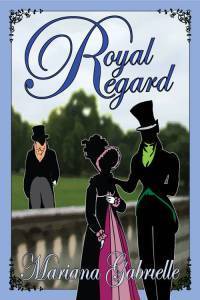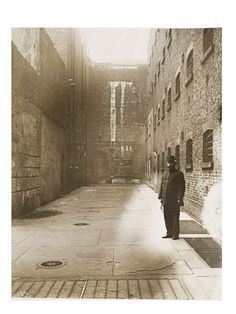Jude Knight's Blog, page 146
April 6, 2015
Tropes and storytelling
 Today, I’m pleased to welcome Caroline Warfield to my blog, to post about tropes and storytelling, and to tell us a little about her latest release. And read to the bottom for news about her giveaway!
Today, I’m pleased to welcome Caroline Warfield to my blog, to post about tropes and storytelling, and to tell us a little about her latest release. And read to the bottom for news about her giveaway!
Jude has written eloquently about the classic tropes, archetypes, and storylines that underlie storytelling in general and romance novels in particular. It made me pause a bit to consider which ones influence my own writing.
Both of my published books and my work in progress are have English characters and are set in the Late Georgian/Regency era. It might be easiest to begin with what I don’t write. I avoid very young virginal heroines. I avoid the “marriage mart.” I have little interest in the reformed rake. I have also avoided impoverished orphans, inheritance issues and compulsive gamblers, at least so far. While some of my characters have titles, none of them could be defined in terms of power and its uses and abuses, as is often the case. Each of the books, however, uses a classic story line.
 Dangerous Works could be called a spunky bluestocking story, except Georgiana’s pain as a frustrated scholar runs deep and her dedication is fierce. The classic story is that of the hero (or in this case heroine) who is repeatedly foiled but keeps trying. She pushes forward for years in the face of family resistance, a system that excludes her from so much as a decent library, and the academic snobbery of Cambridge. Ultimately, with the help and love of Andrew, the hero, she succeeds.
Dangerous Works could be called a spunky bluestocking story, except Georgiana’s pain as a frustrated scholar runs deep and her dedication is fierce. The classic story is that of the hero (or in this case heroine) who is repeatedly foiled but keeps trying. She pushes forward for years in the face of family resistance, a system that excludes her from so much as a decent library, and the academic snobbery of Cambridge. Ultimately, with the help and love of Andrew, the hero, she succeeds.
 Another classic storyline is the one in which actions in the past by the hero or heroine eventually catch up with them, and they must pay their debt. In Dangerous Secrets a terrible mistake haunts the hero, Jamie from the very beginning. He runs as long as he can. His love for Nora actually makes him run harder, but it catches up with him in the end and he has to resolve it. This story does have some common story elements: a wastrel father, a stern vicar, a widow recovering from a bad marriage, a wise older woman friend, and an evil count.
Another classic storyline is the one in which actions in the past by the hero or heroine eventually catch up with them, and they must pay their debt. In Dangerous Secrets a terrible mistake haunts the hero, Jamie from the very beginning. He runs as long as he can. His love for Nora actually makes him run harder, but it catches up with him in the end and he has to resolve it. This story does have some common story elements: a wastrel father, a stern vicar, a widow recovering from a bad marriage, a wise older woman friend, and an evil count.
In my work in progress, Dangerous Weakness, the hero, Glenaire, is forced to journey in search of Lily who is pregnant with his child. It is certainly a hero in search of treasure story. However, the oh-so-perfect marquess is thrust into one alien situation after another, peeling off layers of London refinement. He has to fight his way back to normal life, and, of course, redefine what he wants that life to be.
There are no new stories in any genre. My job as an author is to create flesh and blood, imperfect characters that come to exemplify the traits of true heroes and succeed in completing the challenges presented to them by the storyline. I hope my readers find that I’ve succeeded.
About Dangerous Secrets
 When a little brown wren of an Englishwoman bursts into Jamie Heyworth’s private hell and asks for help he mistakes her for the black crow of death. Why not? He fled to Rome and sits in despair with nothing left to sell and no reason to get up in the morning. Behind him lie disgrace, shame, and secrets he is desperate to keep even from powerful friends in London.
When a little brown wren of an Englishwoman bursts into Jamie Heyworth’s private hell and asks for help he mistakes her for the black crow of death. Why not? He fled to Rome and sits in despair with nothing left to sell and no reason to get up in the morning. Behind him lie disgrace, shame, and secrets he is desperate to keep even from powerful friends in London.
Nora Haley comes to Rome at the bidding of her dying brother who has an unexpected legacy. Never in her sunniest dreams did Nora expect Robert to leave her a treasure, a tiny blue-eyed niece with curly hair and warm hugs. Nora will do anything to keep her, even hire a shabby, drunken major as an interpreter.
Jamie can’t let Nora know the secrets he has hidden from everyone, even his closest friends. Nora can’t trust any man who drinks. She had enough of that in her marriage. Either one, however, will dare anything for the little imp that keeps them together, even enter a sham marriage to protect her. Will love—and the truth—bind them both together?
Available on Amazon
UK http://amzn.to/1Gd9Im9
Canada http://amzn.to/1bbDxde
About Caroline Warfield
Caroline Warfield has at various times been an army brat, a librarian, a poet, a raiser of children, a nun, a bird watcher, a network services manager, a conference speaker, a tech writer, a genealogist, and, of course, a romantic. She is always a traveler, a would-be adventurer, and a writer of historical romance, enamored of owls, books, history, and beautiful gardens (but not the act of gardening).
Social Media Links
Web http://www.carolinewarfield.com/
FB https://www.facebook.com/carolinewarfield7
Twitter @CaroWarfield
LibraryThing http://www.librarything.com/profile/CaroWarfield
Amazon Author http://www.amazon.com/Caroline-Warfield/e/B00N9PZZZS/
Good Reads http://bit.ly/1C5blTm
Bluestocking Belles http://bluestockingbelles.com/who-we-are/caroline-warfield/
To enter Caroline’s prize giveaway, go to: http://www.carolinewarfield.com/dange...



April 5, 2015
The Gingerbread Bride
Here’s a sneak preview of my Christmas novella, to be published in a Bluestocking Belle box set. Usual disclaimers apply: I’m still writing the first draft, so later ideas might mean rewriting this bit, and it needs editing and proofreading. But I’m loving Mary, and Rick is another nice guy. I do enjoy writing nice guys.
 It was Richard Redepenning. What on earth was he doing in a field in Surrey? It was as if her running away conjured him up! She almost smiled as she thought of the number of times he had appeared out of nowhere to rescue her when she was young, and then frowned when she remembered finding out that he had been in London for two months, and hadn’t called on her once.
It was Richard Redepenning. What on earth was he doing in a field in Surrey? It was as if her running away conjured him up! She almost smiled as she thought of the number of times he had appeared out of nowhere to rescue her when she was young, and then frowned when she remembered finding out that he had been in London for two months, and hadn’t called on her once.
Today, she was rescuing herself, thank you very much.
Good manners, however, prompted her to say, “I was sorry to hear about your wound. I trust you are recovering?”
He was dismounting, and she could see for herself that the wound had left him lame. His boot hit the ground and he lurched, catching his balance against the saddle. She almost dropped her bags and put out a hand to help him, but she could hear her father’s voice saying ‘let the man keep his pride, child’.
Instead, she put the bags down gently, and surreptitiously eased her shoulders. The bags had not felt nearly as heavy when she strode away from the others at the coach, after a short argument with the coachman about the merits of following the road versus trusting her navigation skills.
The coachman insisted that sticking to the road was a much better idea, since who knew what barriers might appear on the path she could see cutting down the hill. “I know what I’m doing, miss,” he insisted. If he thought that she was going to trust a coachman who had finally ditched them after multiple near misses, he was soon disabused of the notion.
As soon as she struck out on her own, she questioned whether it had been wise. Even the silly coachman would have been protection from the three men who had been leering at her for most of the afternoon. She was, of course, duly grateful to Lieutenant Redepenning for happening along before they caught up with her. But she had a pistol. She would have managed perfectly well had he not happened along.
“I have some rope here,” Lieutenant Redepenning was saying, as he looked through his saddle bags. “Ah. Here it is. Pass me the carpet bag, Miss Pritchard, and we’ll let the horse carry it the rest of the way to the village.”
She rather thought he needed the horse more than the carpet bag did. But arguing with Richard Redepenning had always been an exercise in futility. He was the only person she knew who could outstubborn her. Though that was at least in part because of the pointless tendre she had held for him since the first time he had rescued her.
She had argued with her nurse; the Spanish nurse, or maybe the French one. There had been three in quick succession the year she was nine. She didn’t even remember what the argument was about, but she did remember deciding there was no point in taking an appeal to Papa. Papa would not countenance insubordination within his family any more than within his crew.
Mary, convinced she was right, had taken it into her head to go looking for something. That’s right, apples. They’d fought about apples. She had passed an apple seller in the market earlier in the day, and had asked for an apple for tea. The nurse had told her the country grew no apples, so she had waited till the silly woman went to sleep, then crept out of her cabin and set off to find the market.
Which was not at all where she expected it to be. She soon became lost in a maze of little streets, and her red hair and fair skins attracted a forest of locals, looming over her and making incomprehensible sounds, while she stood at bay against a wall and prepared to fight for her life.
Then the crowd melted and Midshipman Redepenning was there, smiling at her and holding out a hand, while all the time talking to the village people in their own language. At 14, he had been a beautiful boy, tall and slender, with a crop of golden blond hair and intensely blue eyes.
He didn’t growl, or complain about nuisance girl children. He didn’t offer to suggest that her father beat her (not that Papa ever did). He escorted her home to the ship, and helped her sneak back into her cabin. He even took a detour through the market and bought her an apple.
Mary had fallen in love that day, and stayed in love as the boy grew to the handsomest, kindest man she knew. No other man had ever measured up. Not that Lieutenant Redepenning cared. As far as she could see, he still thought of her as the child he kept having to rescue.
“Miss Pritchard?” There was she lost in memories of some far off sunny shore, while Lieutenant Redepenning stood in front of her with his piece of rope at the ready.
“Thank you,” she said, and she hoisted the bag up and balanced it on the saddle while he tied it, with quick efficient sailors’ knots. The band box went up next, tied in front of the bag.
“If you would see to the gate, Miss Pritchard,” he suggested. “I can walk well enough, but I’m not as spry as usual.”
They slowly sauntered down the hill path, Mary holding the proffered arm but attempting to put no weight on it.
Mary’s anxiety made her cross. He really shouldn’t be walking. Idiot man. He should have stuck to riding, and the road. If he was sore tonight, it would be his own fault, not hers. She didn’t ask him to come after her.
They came to another gate, and on the other side a seat that looked over the village, now almost close enough to touch. They were level with the church roof and the top floor of the inn, and looking down on the cottages.
The last stretch of path, though short, was going to a problem. It was steep and narrow. How was Mary going to get the lieutenant down it without injury?



April 4, 2015
Revised publishing schedule
 I had an idea. I’m not going to tell you what it is, but it is so-o-o good, I’m not aiming to publish Encouraging Prudence in September. Instead, I’m holding it over until October.
I had an idea. I’m not going to tell you what it is, but it is so-o-o good, I’m not aiming to publish Encouraging Prudence in September. Instead, I’m holding it over until October.
And you’ll be glad I did. (Or, at least, I hope you’ll be glad.)
To fill in the gap between the publication of Farewell to Kindness and the publication of Encouraging Prudence, I’m writing another novella, which I’ll publish sometime in July, maybe as a birthday present to myself. It’s tentatively entitled A Baron for Becky, and it isn’t the Marquis of Aldridge’s story. His happy ending is still several years away, but he does have a leading part in the novella, as Becky’s protector.
And that’s all I’m going to say about that.
So, by the end of next month, I plan to have finished the first draft of two novellas (Gingerbread Bride, for the Bluestocking Belles box set, to be published in November), and also of Encouraging Prudence.
And by the end of April next year, two years from the day I started writing Farewell to Kindness, I’ll have published at least three and possibly four novellas and four novels. Or, at least, that’s the plan.



April 3, 2015
Romance with a bear is not interracial
 I have steam coming out of my ears, folks.
I have steam coming out of my ears, folks.
Fellow Bluestocking Belle Mari Christie, who writes as Mariana Gabrielle, is in the final stages of preparing her novel La Déesse Noire for publication in June. So she was looking at the ‘multicultural and interracial romance’ novel list in Amazon, since her heroine is the daughter of an Englishman and an Indian tawaif (great story idea, and I get to read it before you do – but more about that another time).
Mari found the list was dominated by books about werewolves, werebears, vampires, and other fantasy creatures.
I hate to break it to you, but werepeople are not real. Okay? When publishers of paranormal books tag them as ‘multicultural’, they risk trampling on the efforts of writers to bring real diversity – with people from all the world’s ethnicities and cultures’ – within the reach of readers who have a right and a need to read stories about people like them.
If you believe that people have a right and a need to read books with protagonists whose experience reflects their own, please contact Amazon and ask them to consider filtering such books into the paranormal lists, leaving the multicultural and interracial lists for books that reflect real diversity.



April 2, 2015
An Interview with Adolph Fouret, Monsieur le Duc de Malbourne, and Madame Michelle Lemaître
Mariana Gabrielle, author of Royal Regard, provides us with an insight into her duc de Malbourne, in this account of an interview by a researcher of her imagination.
While researching the remaining French noble families scattered across Europe, I have interviewed hundreds of émigrés from Scandinavia to Portugal and Ireland to the Austrian Empire. While other scholars are focused on dynastic details, I am fascinated by the human condition.
After thirteen requests to meet with Adolph Fouret, Monsieur le duc de Malbourne, the last surviving member of la famille Fouret, I was invited to his small manor house near Dover, inherited from his late duchess. While the house is no more than thirty rooms and two stories, the surrounding property encompasses tenant farms, a fishing village, a quarry, and a sizable parcel of woodland.
According to diocesan records, Monsieur le duc is past fifty, but apart from hair greying at the temples, might be at least ten, even twenty, years younger. His face remains relatively unlined, his figure tall, back straight, and limbs well-muscled, perhaps a sign of continued interest in swordplay, such skill still legend in Paris.
 We have been joined by Madame Michelle Lemaître, presumably his paramour, if not wife in common law. As we settle into worn wing chairs in a rarely used parlor, Madame Lemaître pours a fine hock, welcome refreshment on an overly warm day.
We have been joined by Madame Michelle Lemaître, presumably his paramour, if not wife in common law. As we settle into worn wing chairs in a rarely used parlor, Madame Lemaître pours a fine hock, welcome refreshment on an overly warm day.
Monsieur le duc seems disinclined to idle chatter, waiting patiently for me to begin, never asking me directly to state my business. Madame Lemaître, however, makes it clear by manner and gesture that she would prefer not to entertain company, particularly not mine.
Research indicates you lost most of your immediate family during the Revolution.
“All,” he clarifies. “I lost all of my close relations. Four sisters, their husbands, and all of my nieces and nephews went to the guillotine, twenty-six in total, two still babes. Also, four aunts, two uncles, and nineteen first cousins murdered. My wife and child as well, if one believes fear can cause death in childbed.”
After long minutes of silence, Monsieur le duc hands his glass to Madame Lemaître to refill. As she does, her dagger-like glances attempt to cut out my tongue. His dark eyes, by contrast, are dull and motionless, staring past me, face chiseled from ice above his entirely black ensemble.
“It is not enough Monseigneur must live through this?” She finally snaps. “You come to stir up old troubles, long buried? Finish your questions and leave him in peace.”
Sipping the wine slowly, carefully, he awaits the next question as though I, myself, am a guillotine.
What is your greatest fear?
“Monseigneur is not a coward,” Madame Lemaître growls, staring down her nose at me until Malbourne clicks his tongue.
“Ma chére, the gentleman is not so unwise as to call me a coward.” The look on his face first demands, then accepts, an apology to the lady, whose indignation remains palpable.
Once satisfied his honor is intact in her eyes, he taps the back of her hand and says simply, “I am a Fouret; I fear nothing.”
 Who is the greatest love of your life?
Who is the greatest love of your life?
“I have never thought love so important I should count its worth.” Madame Lemaître’s face turns away, eyes downcast, shoulders tensed. “Romance is for peasants who have no money to keep them warm, nor family name to bring them notice.”
His idle index finger tucks a strand of loose hair from her coiffure behind her ear, drawing her attention back to him.
What is your most treasured possession?
His fingers tighten on Michelle’s knee as he shrugs, “I was able to save a folio of sketches by Jean Clouet when I escaped the Revolution. It has been in my family almost 250 years.” His hand slips under hers next to her leg, intertwining their fingers. Her lips turn up infinitesimally.
Where would you like to live?
His nostrils flare and the heel of his latchet shoe begins tapping against the floor, stopping only when she grips his hand so tightly two sets of knuckles turn white.
Forcing his gritted teeth apart, he finally answers, “Had verminous peasants not overrun my family’s land during the farmers’ uprising, I would be living now at le Chateau de Fouret in the Vosges Mountains. This estate…” He waves his hand about the small, dusty room. “This manor house is a hovel.”
What is your greatest regret?
His face twitches as though trying to stop the sneer manifest in his voice. “That I did not execute every peasant in Alsace in 1785.”
What do you consider your greatest achievement?
“Monseigneur is sixteenth in line for the French throne,” Madame Lemaître exclaims, as proud as if he had discovered a cure for the Black Death. Her hand flies to her mouth, apparently unsure if she should boast on his behalf. The incline of his head both reassures and confirms her claim, and his thumb caresses hers.
What is the quality you most like in a man?
“I find men, on the whole, an inferior breed.” His hand smooths a wrinkle in Madame Lemaitre’s sleeve, trailing a fingertip down her forearm. “Women are much more satisfactory companions.”
What is the quality you most like in a woman?
 “That must depend, monsieur,” he laughs, “whether the woman will grace my bedchamber or my dining hall. For a lover,” he says, tugging at a lock of Michelle’s greying red hair, “I prefer a flame-haired wench of loose morals who will meet my appetites.” When she blushes, he taps the tip of her nose and almost smiles.
“That must depend, monsieur,” he laughs, “whether the woman will grace my bedchamber or my dining hall. For a lover,” he says, tugging at a lock of Michelle’s greying red hair, “I prefer a flame-haired wench of loose morals who will meet my appetites.” When she blushes, he taps the tip of her nose and almost smiles.
At the smallest movement of her head toward his shoulder, he shifts away and the hair pull becomes a warning to keep her place. “Were I to take a second wife, which is not my inclination, I would seek a woman whose conduct will bring credit to me, a noblewoman of sophistication and refinement.”
Madame Lemaître sniffs and turns her shoulder to Malbourne, but at a sharp pinch to her arm, she turns back, watching his face closely, stopping her motion when he raises a brow. As she settles against the back of the sofa, he rests their joined hands on her thigh.
“In either case,” he says, attention on Madame Lemaître, eyebrow still raised, “I value obedience most highly. It is best for females to be subject to the will of their fathers or husbands, lest their capricious natures bring them to harm.”
What is the trait you most deplore in others?
“I detest commoners. They are lazy and stupid and smell of pigs.”
Clearly, given her heavy rural Lorrain accent, Madam Lemaître is not of noble birth, but a stark nod denotes complete agreement.
“The bourgeoisie, though, are grasping, ill-mannered vipers.” Ignoring the flush on her cheeks, the only indication thus far of her pedigree, he continues, “It is hard to know which is worse.”
What do you consider the most overrated virtue?
Madam Lemaître laughs aloud before he answers, an ironic twist to his lips, “Chastity is a ridiculous notion, but for faithful servants of God and unwed noble daughters.”
On what occasions do you lie?
“You say now Monseigneur is a liar and a coward?” Madam Lemaître tugs at his wrist, as though to pull him out of the room. “He is cousin to the Kings of France, monsieur, and you are no one.” She waves her hand as though to sweep me from the room. “Not a horse dropping on Monseigneur’s shoe.”
With a firm jerk, he reseats her at his side and silences her outburst. “Noblemen do not lie,” he says, with the barest twitch of his shoulder.
At her harrumph, he adds, “Clearly, I must remove Michelle before she does you some injury. I should not like to be you, monsieur, should she find reason to use teeth and talons in my defense. Ma doux pute has a sharp tongue but her fangs, they are like rapiers.
“If you do not believe me…” he says, a teasing note in his voice, tugging at the knot in his black cravat, “I can show you…” The corners of his lips turn up, closer to a smile than at any time since my arrival, seeking her reaction from the corner of his eye. For a moment, he appears inexplicably young, like a small boy playing a prank.
She slaps at his knee and giggles, so he abandons his mischief and they rise, Malbourne holding her snug against his side. One of her arms reaches around his waist; the other rests lightly on his hip, and with her head tucked under his chin, he absently caresses her cheek. Placing a kiss on the crown of her head, he says, “I expect, monsieur, you can find your way out.”
To learn more about le duc, read Royal Regard.
 After fifteen years roaming the globe, the Countess of Huntleigh returns to England with her dying husband. She soon finds herself plagued by terrible troubles: a new title, estate, and sizable fortune; marked attentions from the marriage mart; the long-awaited reunion with her loving family; and a growing friendship with King George IV.
After fifteen years roaming the globe, the Countess of Huntleigh returns to England with her dying husband. She soon finds herself plagued by terrible troubles: a new title, estate, and sizable fortune; marked attentions from the marriage mart; the long-awaited reunion with her loving family; and a growing friendship with King George IV.
Settling into her new life, this shy-but-not-timid, not-so-young lady faces society’s censure, the Earl’s decline, false friends with wicked agendas, and the singular sufferings of a world-wise wallflower. Guided by her well-meaning husband, subject to interference by a meddlesome monarch, she must now choose the dastardly rogue who says he loves her, the charming French devil with a silver tongue, or the quiet country life she has travelled the world to find.
Buy/Review Links
Smashwords * Amazon * iTunes * Barnes and Noble * Kobo * Goodreads
Social Media
 Website *
Facebook *
Twitter *
WordPress blog *
Pinterest *
Amazon Author Central
Website *
Facebook *
Twitter *
WordPress blog *
Pinterest *
Amazon Author Central
Author Bio
Mariana Gabrielle is a pseudonym for Mari Christie, a mainstream historical and Regency romance writer. She is also a professional writer, editor, and graphic designer with twenty years’ experience and a Bachelor’s in Writing from the University of Colorado Denver, summa cum laude. She lives in Denver, Colorado with two kittens who have no respect at all for writing time.



April 1, 2015
Romance fiction is escapist
 I had the best compliment last night. One of the people at the Facebook launch party for Farewell to Kindness sent me a direct message that said:
I had the best compliment last night. One of the people at the Facebook launch party for Farewell to Kindness sent me a direct message that said:
Your talent is amazing and all the days that the kiddos have been sick , had a fussy baby, and getting ready for family to come I have also gotten to escape to a country fete. You really know how to draw your reader in and make them excited about the next day’s events and all the characters.
I’ve been an undiagnosed coeliac for most of my life – plagued by gruelling headaches, rashes, abdominal cramps, nausea, and bone-deep exhaustion. And I raised six children, one through cancer and then disabilities caused by the chemotherapy. And I worked full time after my youngest started school.
Books were my escape. When I was reading a good book, I went to another world where the problems and challenges belonged to someone else, and where good won over evil. Badly written books didn’t do it for me; but a book that captured my imagination took me on holiday.
Books kept me sane, refreshed me, and sent me back into my life ready for the next challenge.
To know I’ve performed the same service for another person is beyond amazing. I’m touched, humbled, and exhilarated, all at the same time. Thank you, Crystal.
Romance fiction is escapist? Hell yeah!



March 30, 2015
Farewell to Kindness is being released as the world spins
 As 30 March gives way to 31 March around the world, Farewell to Kindness preorders are winging their way through the Internet to people’s Kindles, Nooks, Kobos, iPads and other reading devices.
As 30 March gives way to 31 March around the world, Farewell to Kindness preorders are winging their way through the Internet to people’s Kindles, Nooks, Kobos, iPads and other reading devices.
The launch party is tomorrow my time. I’ll be up and posting by 5am. Click on the banner to go to the event.
I’d love if you can join us.



March 29, 2015
The maws of despair – an excerpt from Encouraging Prudence
Further to my article on Newgate, here’s an excerpt from Encouraging Prudence.
Chapter 13
The gray walls of Newgate shadowed the street, and the stench of human despair reached out, so strong that Prue imagined it had a bodily presence that would drag her through the felons’ door and into the prison.
She froze before the heavy door, and one of the guards shoved her forward, roughly but without malice. “Not going to get better if’n you stand here,” he told her.
Inside, the system moved into ponderous action. She, and the charges against her, were catalogued, and she was passed into the hands of the prison staff. She felt a wave of horror as the guards left her alone with the keepers, as if her last connection with the outside world was walking away from her.
No. David would not abandon her. She had only to endure until he could make arrangements.
“P. Worth. Thief and murderer,’ the keeper who had spoken to the guards reported, as he ushered her into a dirty cramped little room where two keepers waited, one behind an untidy desk, and the other hunched over a meagre fire.
“Accused, awaiting trial, and innocent,” Prue said, amazed that her voice sounded so calm when she had to force it through a throat stiff with panic.
The keepers both snorted their amusement. “How much?” the one behind the desk asked.
Prue had no idea what he was talking about. “How much what?”
“Money. How much can you pay for a bed? For food?”
The runners had taken all of her money along with the money and jewels planted in her belongings. She had nothing. David would come. She had to believe that.
“A friend of mine is coming. He will bring whatever money I need.”
“Your friend,” he managed to invest the word with salacious meaning, “isn’t here now. We need money up front, not a thief-whore’s promises.”
“I have no money on me, but Mr Wakefield will take care of it when he comes.” She would not panic. She could endure this.
The man behind the desk shook his head. “Have to be paid, sweetheart. Cash or kind.”
The other man, the one in front of the fire, spoke for the first time, “We could be kind if she was kind, what do you say, Merton?”
They leered at her, and she glared back. “Mr Wakefield will avenge any insult to me,” she told them.
Something got through to them. Her assumed confidence, perhaps, or her upper class accent. They exchanged uncertain glances, then frowned at her. The bully behind the desk came to a decision. “Right, then. We’ll ‘ave that dress. Worth a bob or two that is.”
“And the shoes,” chimed in his accomplice. “Three shillings the shoes, two shillings the dress. Get you a bed in the main ward for a week, that will. Can’t do fairer than that.”
Prue backed against the wall. They weren’t seriously intending to take her dress and shoes, were they?
They were. “Come along, off with them. I could ‘elp you, if you like.” The accomplice approached her, his leer stirring old ghosts so that she had once again to swallow against a suddenly closing throat.
“Hold them safely,” she instructed coldly. “Mr Wakefield will redeem them when he comes.”
The stone of the floor struck cold up through her stockinged feet, and cold radiated off the grimy stone of the passage walls as the two keepers escorted her through the prison in her shift. She was battered on every side by the constant din — shouting, screaming, screeching, crying, and various unidentified bangs and clatters. And the rank smell got worse the closer they came to the place where she was to be confined.
One keeper unlocked the door while the other attempted to put his arm around Prue. She slid sideways to evade him.
In response, he gave her a rough shove through the doorway, so that she stumbled and almost fell. The door clanged shut behind her, audible even through the tumult that her entry had barely dented.
She was in a open space — a courtyard around 40 feet long and 10 feet wide made smaller by the number of women and almost twice that number of small children occupying it. Three tiers of rooms had barred windows onto the courtyard. Through the door of the nearest one at ground level, she could see rows of pallets on the floor.
Slowly, her eyes began to make sense of the constant churning movement: children running in and out of groups of women who were arguing, gossiping, playing cards and throwing dice, cooking over small fires, nursing babies, disciplining toddlers, drinking, eating, and shouting. In one corner, an argument descended into a hair-pulling fight, and further down the yard, a group of women who had been singing suddenly broke into a high-kicking dance, arm in arm in a long line.
The noise was indescribable, but not as intensely offensive as the smell: rotting food, human waste, unwashed bodies, all blended into a stench that made the inside of her nostrils feel grimy.
She would burn her stockings and her shift when she was free of this place.



March 28, 2015
Introducing The Teatime Tattler
 The Bluestocking Belles have started a gossip rag. On The Teatime Tattler, we plan to have character sketches, interviews with characters, scenes with characters, and gossip about characters. What makes this different is that the entries won’t be excerpts. They’ll be original pieces, written especially for for The Teatime Tattler.
The Bluestocking Belles have started a gossip rag. On The Teatime Tattler, we plan to have character sketches, interviews with characters, scenes with characters, and gossip about characters. What makes this different is that the entries won’t be excerpts. They’ll be original pieces, written especially for for The Teatime Tattler.
I put up the first article – a little scene set in Longford, where one of the local ladies is snooping to find out whether her competition for the fete pastry prize is instead competing on the preserves bench. She finds a tasty bit of gossip she doesn’t expect when the earl’s man knocks on the back door.
Click on the link above to read the sketch, and come back each Saturday and Wednesday to find out what the Belles and our guests have written for your delight.



March 27, 2015
Fun with formulas
This blog post arises out of another discussion at work about romance novels, and specifically the idea that romance novels are formulaic.
In a sense, it’s a fair comment. Books that can be classified into a specific genre are, of course, books that fit the pattern associated with that genre. They follow a formula, just as pies follow a formula in that they have pastry and a filling. Within the formula, though, the scope is enormous.
The person making the accusation usually means the term in a negative way, however. They have in mind the idea that the characters are stereotypes and the plots predictable. They may even believe the old myth that the first kiss must occur one third of the way through chapter six. Bless them. They’ve probably been reading romance all their lives and calling it something else.
So I thought I’d talk about a few literary devices, just to show you that, in the final analysis, all literature is formulaic.
 Tropes are recognisable patterns
Tropes are recognisable patternsAt Facebook parties, I’ve been offering guests a trope bingo card. In the 25 squares of the card (five by five) are common historical romance tropes, and the goal is to match a book to a row of them. Four is a win. Five is a bigger win.
So what are tropes? They are literary patterns – story elements that a writer can expect readers to recognise. Historical romance has the virgin widow, the arranged marriage, second chance love… there are dozens of patterns a writer can draw on, knowing that readers will feel a sense of familiarity.
It’s the author’s job to take that pattern and either turn it on its head or combine it with other patterns to make an unexpected whole.
Stereotypes are unproven assumptions
Stereotypes are different. Stereotypes are oversimplified classifications of people or things. We stereotype when we look at one or two characteristics and make a huge number of assumptions about the person or thing based on prejudices rather than experience.
Stereotypes can occasionally be useful: the evil drug lord is probably a reasonable character to have. But good authors might also use stereotypes for characters that take a more central role, only to break them in an interesting way.
Archetypes are characters that all human cultures recognise
Some characters are universally recognisable. When we recognise them in a story, we know the role they will play, and we gain a deep satisfaction from seeing them play it. The hero is an archetype. Here’s a description I found of his (or her) characteristics:
Motto: Where there’s a will, there’s a way
Core desire: to prove one’s worth through courageous acts
Goal: expert mastery in a way that improves the world
Greatest fear: weakness, vulnerability, being a “chicken”
Strategy: to be as strong and competent as possible
Weakness: arrogance, always needing another battle to fight
Talent: competence and courage
The Hero is also known as: The warrior, crusader, rescuer, superhero, the soldier, dragon slayer, the winner and the team player.
Different pundits offer different numbers of archetypes, from four to as many as 47. The key is that they are cross-cultural; you find them in all human story-telling in one guise or another.
Plot lines can be classified
Some people suggest that all of literature consists of only seven basic plots. Others find as many as 36. A couple of years ago, I sat down with half a dozen different lists and came up with 13. Interwoven, and with different tropes and archetypes, they create an infinite number of stories, but here they are in their elemental form. I’ve expressed them as situations rather than exploring the whole plot line, because each of the 13 takes a different trajectory, depending on whether it leads to a happy ending or a tragic ending.
The worth of a good character is not recognised.
The overreaching and egotism of the hero or heroine causes disaster.
Actions by the hero or heroine in the past eventually catch up with them, and they must pay their debt.
One character (either hero or heroine) is torn between two love interests, often a spouse and another person they prefer.
The villain tricks or tempts the hero, the heroine or both into detrimental action.
The love between the hero and the heroine is forbidden.
Something precious is taken away, leading to a search.
The hero or heroine is repeatedly foiled, but keeps trying.
A sinner is required to do penance over a long period of time.
A hero or heroine must defeat a monster and restore order to the world.
A hero or heroine travels in search of priceless treasure and fights evil and overpowering odds.
The hero or heroine is thrust into an alien environment and make their way back to normal life.
Evil grows ever stronger, bringing the hero or heroine almost to death, and they are saved only by miraculous intervention.







